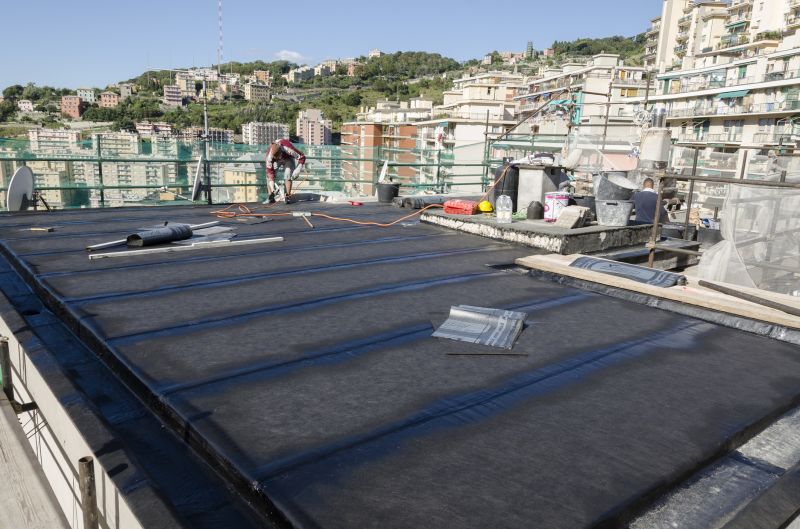Popular Roof Tarping Solutions for Emergency and Long-Term Protection
Find the most trusted tarps that offer superior weather resistance and versatility for various roofing needs.
 Roof tarps are versatile and essential tools for protecting structures from weather elements, leaks, and damage. They come in a variety of materials, sizes, and thicknesses to suit different needs, whether for temporary repairs, covering equipment, or emergency shelter. When selecting a roof tarp, it is important to consider durability, waterproofing capabilities, UV resistance, and ease of installation. High-quality tarps can provide reliable coverage during storms, construction projects, or outdoor events, helping to safeguard property and assets.
Roof tarps are versatile and essential tools for protecting structures from weather elements, leaks, and damage. They come in a variety of materials, sizes, and thicknesses to suit different needs, whether for temporary repairs, covering equipment, or emergency shelter. When selecting a roof tarp, it is important to consider durability, waterproofing capabilities, UV resistance, and ease of installation. High-quality tarps can provide reliable coverage during storms, construction projects, or outdoor events, helping to safeguard property and assets.
Top Overall Option
Heavy-Duty Reinforced Polyethylene Tarp
This type of tarp is constructed from high-density polyethylene with reinforced edges and multiple grommets, offering a reliable barrier against water, wind, and UV rays. Its lightweight yet durable design makes it suitable for various temporary roofing needs, providing a versatile solution for emergency repairs or covering outdoor equipment. The reinforced construction enhances tear resistance, making it a dependable choice for demanding conditions.
Types of Products For Roof Tarpings
Polyethylene Tarps
Lightweight and water-resistant, ideal for general protection and temporary roofing solutions.
Vinyl Tarps
Heavy-duty and durable, suitable for long-term outdoor protection and industrial applications.
Canvas Tarps
Natural fiber-based tarps that are breathable and often used for shading or light covering needs.
Mesh Tarps
Offer ventilation while providing protection from debris and sunlight, used in construction sites.
Reinforced Tarps
Features additional fabric or scrim reinforcement for enhanced durability and tear resistance.
Insulated Tarps
Designed with insulating materials to provide thermal protection in addition to waterproofing.
Fire-Resistant Tarps
Made with flame-retardant materials for applications requiring increased safety standards.
Clear Poly Tarps
Transparent options that allow sunlight to pass through while offering protection from the elements.
Camouflage Tarps
Designed with camouflage patterns for outdoor or military applications, blending into natural surroundings.
Heavy-Duty PVC Tarps
Made from polyvinyl chloride, offering high durability and resistance to punctures and tears.
Popular Choices
Commonly used for temporary roof coverage, offering water resistance and ease of handling.
Preferred for heavy-duty outdoor protection, especially in construction or industrial settings.
Popular for their strength and durability in demanding environments.
Designed to withstand prolonged sun exposure, extending the lifespan of outdoor coverings.
Ideal for shade and ventilation, often used in outdoor construction sites.
Allow sunlight transmission while providing weather protection, suitable for greenhouses or skylights.
Used in outdoor or military settings for concealment and protection.
Used in environments where fire safety is a concern, offering flame resistance.
Provide thermal insulation along with weather protection, suitable for extreme conditions.
Offering high durability and resistance to punctures, suitable for industrial applications.
The construction and material composition of roof tarps significantly influence their performance. Polyethylene tarps, often reinforced with fabric or scrim, are popular due to their lightweight nature and resistance to tearing. Vinyl tarps tend to be heavier and more durable, offering enhanced longevity and resistance to harsh weather conditions. Additionally, the grommets and reinforcement around the edges play a crucial role in ensuring secure attachment, especially in windy conditions. Properly choosing a tarp with appropriate dimensions and features can facilitate quick setup and effective protection.
Maintenance and storage are also key considerations. A tarp that is easy to clean, fold, and store will be more convenient for repeated use. UV-resistant coatings help extend the lifespan of the tarp by preventing degradation from sun exposure. When using a tarp for roof protection, it’s advisable to select one with reinforced corners and multiple grommets to distribute tension evenly and prevent tearing. Overall, selecting the right roof tarp involves balancing size, material quality, and specific application needs to ensure effective coverage and durability over time.
Key Buying Considerations
- Material durability and resistance to tearing or punctures
- Waterproofing capabilities for effective rain protection
- UV resistance to prevent degradation from sun exposure
- Size and dimensions to adequately cover the intended area
- Reinforced edges and grommets for secure attachment
- Ease of handling, folding, and storage
- Weight of the tarp for portability and ease of installation
- Thermal insulation properties if needed for temperature control
- Fire resistance ratings for safety in certain environments
- Transparency or opacity depending on light requirements
- Breathability for applications requiring airflow
- Cost and value for the intended duration of use
- Compatibility with existing hardware or attachment methods
- Ease of cleaning and maintenance
- Intended use environment (temporary, long-term, industrial, etc.)
